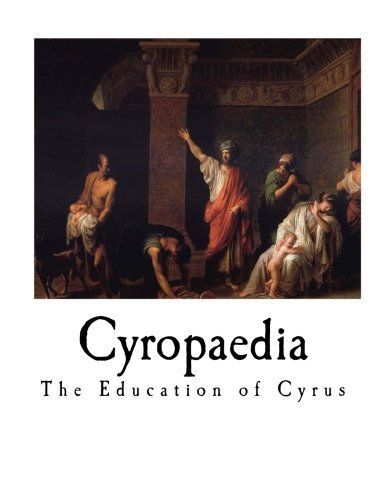
Cyropaedia The Education of Cyrus
Cyropaedia or The Education of Cyrus by Xenophon Translated by H. G. Dakyns and Revised by F. M. Stawell The Cyropaedia, sometimes spelled Cyropedia, is a partly fictional biography of Cyrus the Great, written around 370 BC by the Athenian gentleman-soldier, and student of Socrates, Xenophon of Athens. The Latinized title Cyropaedia derives from Greek Kurou paideia, meaning "The Education of Cyrus." Aspects of it would become a model for medieval writers of the genre known as mirrors for princes. In turn it was a strong influence upon the most well-known but atypical of these, Machiavelli's The Prince, which was an important influence in the rejection of medieval political thinking, and the development of modern politics. However, unlike most "mirrors of princes," and like The Prince, whether or not the Cyropaedia was really intended to describe an ideal ruler is a subject of debate. A very few words may suffice by way of introduction to this translation of the Cyropaedia. Professor Jowett, whose Plato represents the high-water mark of classical translation, has given us the following reminders: "An English translation ought to be idiomatic and interesting, not only to the scholar, but also to the unlearned reader. It should read as an original work, and should also be the most faithful transcript which can be made of the language from which the translation is taken, consistently with the first requirement of all, that it be English. The excellence of a translation will consist, not merely in the faithful rendering of words, or in the composition of a sentence only, or yet of a single paragraph, but in the colour and style of the whole work." These tests may be safely applied to the work of Mr. Dakyns. An accomplished Greek scholar, for many years a careful and sympathetic student of Xenophon, and possessing a rare mastery of English idiom, he was unusually well equipped for the work of a translator. And his version will, as I venture to think, be found to satisfy those requirements of an effective translation which Professor Jowett laid down. It is faithful to the tone and spirit of the original, and it has the literary quality of a good piece of original English writing. For these and other reasons it should prove attractive and interesting reading for the average Englishman.